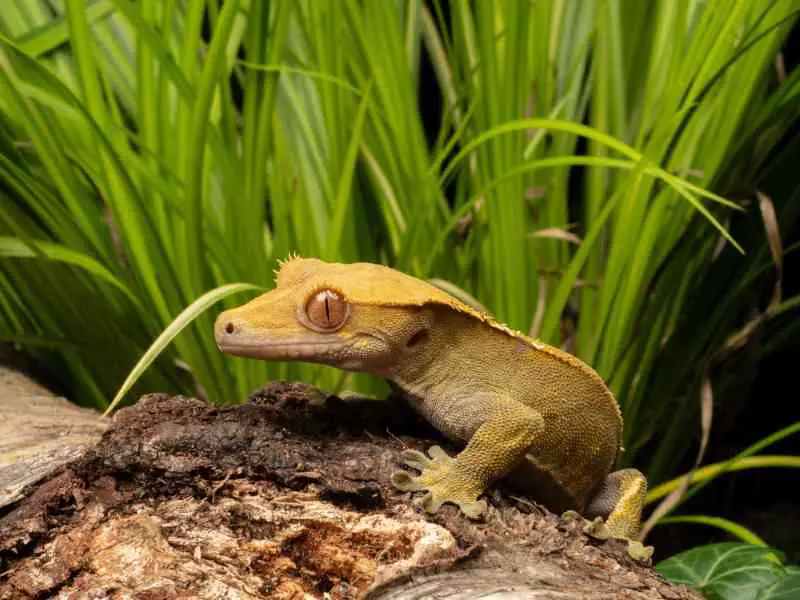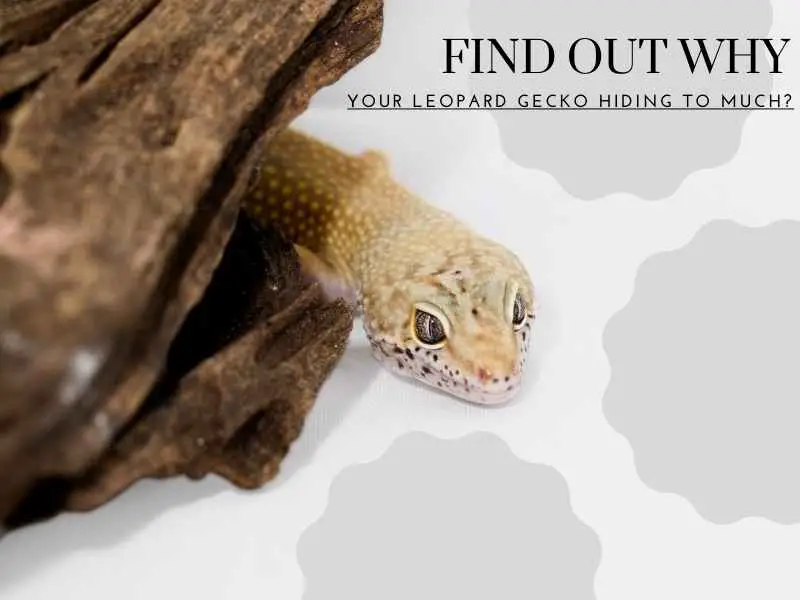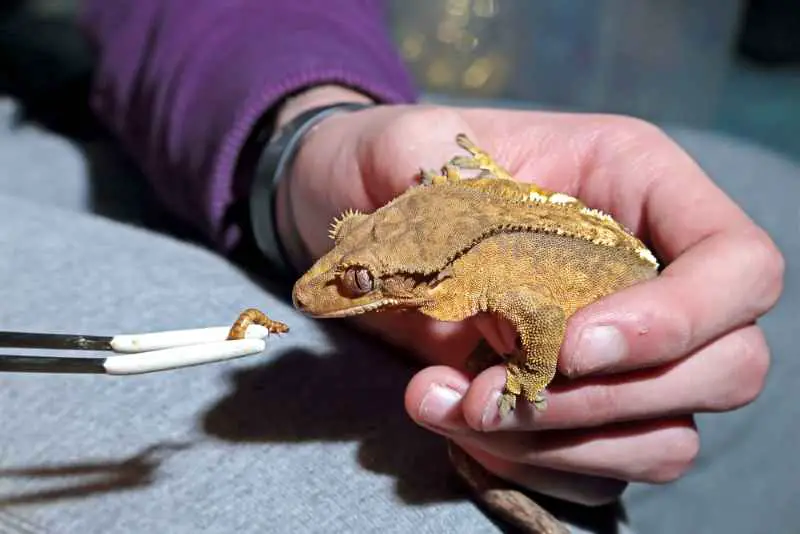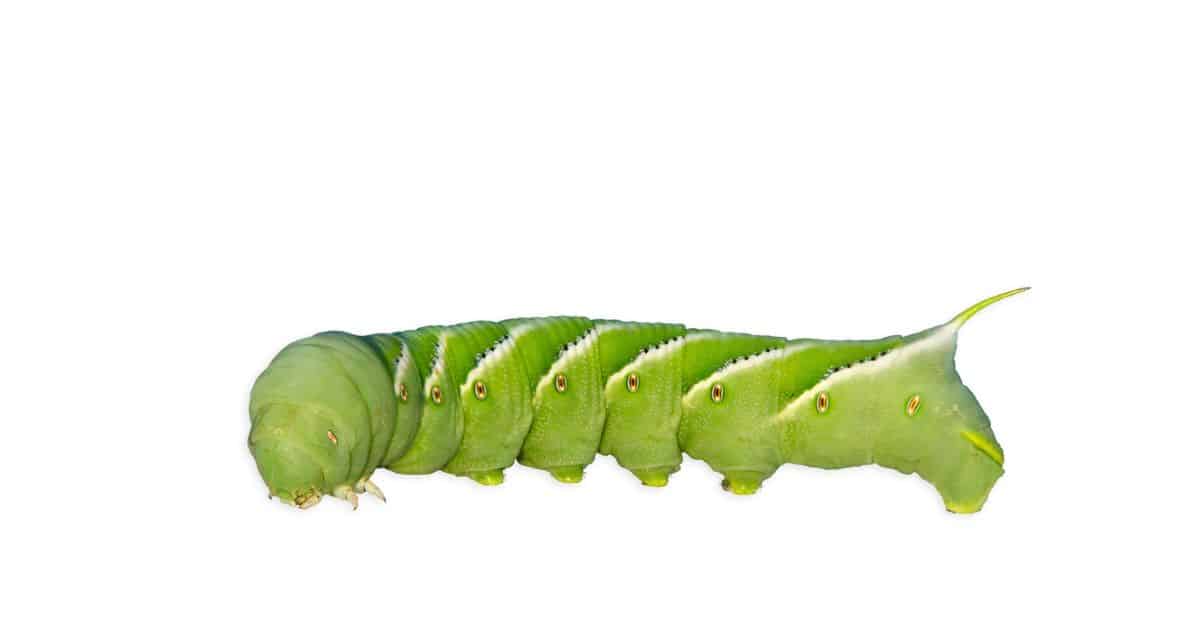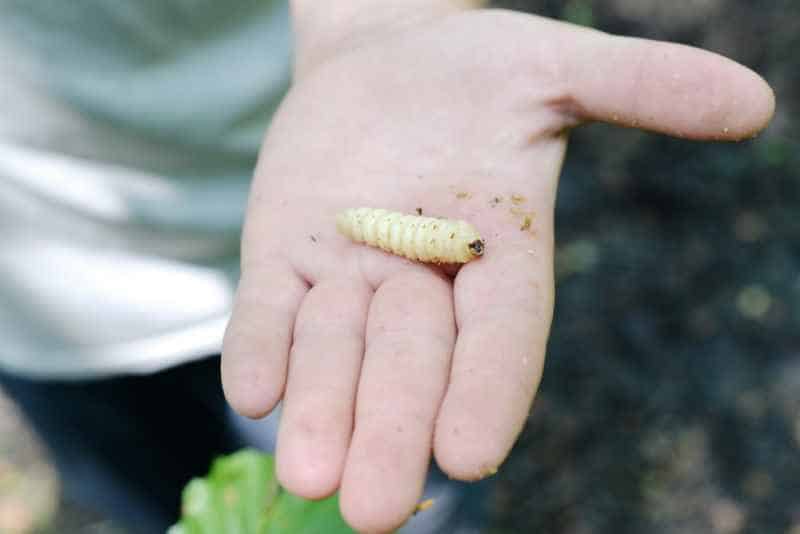Gecko Impaction: Causes, Symptoms, and Treatment
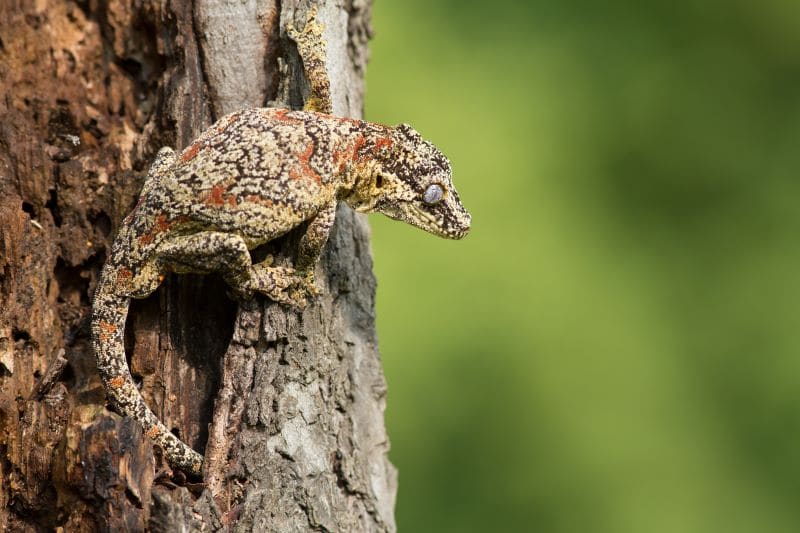
Impaction is one of the most common ailments geckos face. In simple words, impaction is simply a blockage in the digestive tract that causes constipation in geckos. If left untreated, impaction can become fatal.
This article will discuss impaction in geckos – its causes, symptoms, and treatment.
Contents
What Causes Impaction In Geckos?
Impaction is typically caused due to improper digestive functioning in geckos. As a result, the gecko cannot defecate properly. Now, it can be due to various reasons as mentioned below.
- Large Feeder Insects
Typically, your gecko may experience impaction if their diet consists of large or hard feeder insects. For instance, if you’re feeding giant mealworms or crickets to your gecko regularly, it may cause impaction.
Tip: As a standard rule, it is best to feed roaches and worms that are not larger than the space between your gecko’s eyes.
- Loose Substrates
Apart from nutrition, you should also take care of the substrate for your gecko’s terrarium.
Using loose substrates like sand or wood chips is a big no-no. Your gecko may feed on them regularly. Hence, the loose substrates may clump together over time and lead to a blockage in the digestive tract.
- Improper Living Conditions
Improper temperature and humidity aren’t direct causes of impaction. However, they can impair your gecko’s digestive system. Consequently, your gecko may find it hard to digest food items, leading to obstruction in their digestive tract.
Impaction: How to Know If My Gecko Has It?
Suppose you fear that your gecko suffers from impaction. In that case, you need to look out for the symptoms given below.
- Constipation
- Sudden loss of appetite
- Constant cloaca licking
- Regurgitation
- Weight loss
- Abdomen swelling
- Black or blue spots on the belly
- Decline in activity
You need to treat your gecko for impaction or consult a veterinarian if it exhibits the above symptoms.
What to Do If My Gecko Has Impaction?
Try out the tips below if you suspect that your Gecko has impaction.
- Take Care of the Diet
The first thing you need to do if you suspect that your gecko has impaction is to feed them with appropriate food.
As geckos don’t require insects compulsorily, you can skip those in their diet. Instead, just stick to a fruit-based diet. You can also prepare a fruit puree and feed it to your gecko using a syringe for easy digestion.
However, if you’re feeding them live insects, you need to avoid hard foods and hard-bodied insects like mealworms. Instead, opt for soft-bodied feeder insects.
The table below denotes popular hard-bodied and soft-bodied feeder insects.
| Insect Type | Insect Name |
| Hard-Bodied Insects | Mealworms |
| Crickets | |
| Soft-Bodied Insects/Worms | Nutrigrubs or Black Soldier Fly Larvae |
| Silkworms | |
| Superworms (when fresh) | |
| Dubia roaches |
Note that the size also matters. Don’t feed huge-sized feeder insects to your gecko if they’ve impaction.
You should also prevent giving your gecko high-fat feeder insects like waxworms and butterworms.
- Massage or Bathe Your Gecko
You don’t need to bathe or massage your gecko regularly. However, you may want to consider bathing them once every three to four days if they have impaction. It may help in relaxing the blockage and help them poop.
Here’s what you need to do:
- First, take a small container or plastic tub with a proper lid.
- Then, create small holes in the lid to limit humidity.
- Fill the container with water. Ensure that the water level reaches the gecko’s tummy but isn’t more than their shoulders.
- The water temperature should be the same as the terrarium’s (72-78°F).
- Then, keep your gecko in the container.
- Start massaging their belly gently – starting from their throat to their tail’s base.
- Finally, close the lid and let your gecko sit in the container for 10 to 15 minutes.
Note: Ensure that the container’s temperature doesn’t exceed 82°F.
- Keep Your Gecko Hydrated
Dehydration may cause impaction to get worse. Therefore, providing your gecko with sufficient water may help them ease the blockage causing impaction.
As geckos drink from a shallow water bowl, ensure that it has water at all times.
If your gecko isn’t drinking sufficient water, you can give them a moisture-rich diet to compensate for the water deficiency.
- Check The Tank’s Settings
As mentioned above, the tank’s settings play a huge role in causing or worsening impaction in geckos. So, check the tank’s temperature, humidity, and substrate.
Temperature: Geckos require a tank temperature between 77-84°F. However, it should also differ as per the various zones mentioned in the table below.
| Basking Area | 84°F |
| Cool Zone | 72-74°F |
| Shade Air Temperature | 77-84°F |
| Night Air Temperature | 68-77°F |
Humidity: The tank humidity should be anywhere between 50-70% for a healthy environment.
Substrate: Substrate impaction due to sand/loose substrates is quite common. So, ensure that you use proper substrates such as peat moss.
- Consult a Veterinarian
You should definitely consult a veterinarian if your gecko hasn’t pooped for days. It might mean that the impaction is severe and requires medical care.
Typically, a veterinarian might conduct an X-Ray of the gecko’s belly to check the severity of impaction. They may proceed to provide you with laxatives or conduct surgery on the gecko.
A simple consultation with a veterinarian costs at least $50 or more. Moreover, impaction surgeries may cost anywhere between $50 to $200. You also need to weigh in the X-ray charges that depend on the vet clinic.
Note: Most pet insurances don’t cover medical expenses for exotic pets, like geckos.
Can My Gecko Still Poop If They Have Impaction?
Impaction is an obstruction in the digestive tract of reptiles like geckos. This may lead to constipation and hence, less frequent or no poop.
Typically, healthy geckos poop once in two days. However, an impacted gecko may only poop once in five to seven days. In severe cases, they may not poop at all.
Final Thoughts
Impaction in geckos can be due to various reasons like improper diet, tank conditions, and dehydration. Therefore, ensure that you feed small feeder insects to your gecko, avoid using loose substrates, and ensure proper tank temperatures and humidity.
If your gecko suffers from impaction, feeding them with the right food and massaging/bathing them may help. In severe cases, a vet visit is a must.
